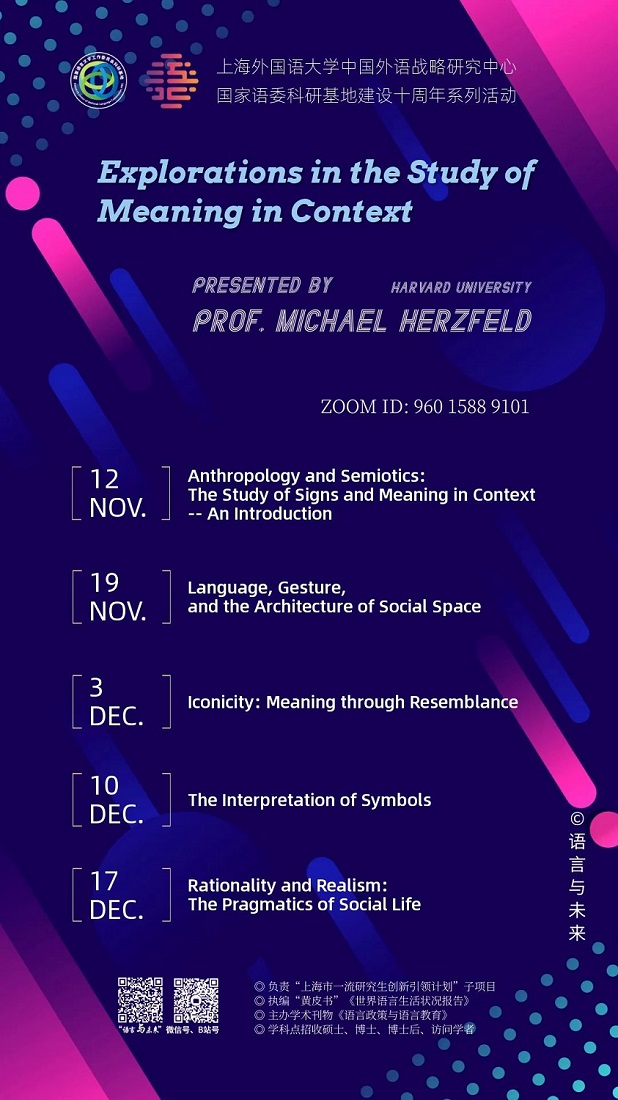
12nd, Nov., 2021 20:00-22:00
“Anthropology and Semiotics: The Study of Signs and Meaning in Context -- An Introduction”
This is a broad introduction to the relationship between Social Anthropology and Semiotics. Among the topics to be covered are the Peircean triad of icon, index, and symbol, and a discussion of their relevance for analyzing conversation and social interaction. We will also address the role of these concepts in understanding how context affects meaning.
19th, Nov., 2021 20:00-22:00
“Language, Gesture, and the Architecture of Social Space”
This lecture will be about how we understand the meaning of gestures and how gesture, social interaction, and physical space are inter-related. We will also explore the difference between gesture and sign language, and discover why “body language” is a misleading term.
3rd, Dec., 2021 20:00-22:00
“Iconicity: Meaning through Resemblance”
Here we will turn to the intriguing question of why we think some things, people, etc., resemble each other while others do not. Resemblance does not exist purely in nature; it is governed by cultural rules. Exploring the semiotic concept of iconicity will help us understand how that works, and how resemblance is often confused with meaningfulness.
10th, Dec., 2021 20:00-22:00
“The Interpretation of Symbols”
We now turn to a classic anthropological question: how do we determine what symbols mean in a given society, and how do we validate such interpretations? What other kind of knowledge are necessary for such an operation? What happens when symbols move, or fail to move, the emotions?
17th, Dec., 2021 20:00-22:00
“Rationality and Realism: The Pragmatics of Social Life”
In this final lecture, we explore the limits of our ability to understand how social life works. We will examine the possible meanings of (social) “realism” and will lay out some criteria for evaluating ethnographic data.
迈克尔·赫兹菲尔德
迈克尔·赫兹菲尔德(Michael Herzfeld)为哈佛大学人类学系教授,是希腊、意大利、泰国等区域与国别研究的代表人物;在人类学史、社会诗学、历史政治学、语言人类学、批判遗产学等领域颇具造诣,出版区域国别研究的人类学著作12部,其中3部获美国优秀学术著作奖
赫兹菲尔德教授擅长用人类学民族志方法从事欧洲、东南亚研究,所涉国家与区域研究对当地政府、民众产生了较大影响,媒体大量报道他的学术踪迹,以及他对当地生活、文化与政治的敏锐观察;其“文化亲密性理论”推进了学界对民众日常生活与国家机构之间动态关系的理解
出于对研究对象的尊重,赫兹菲尔德教授每去一个新的国家,都以谦卑的姿态进入,学习当地语言;因此他熟练掌握了英语、法语、希腊语、意大利语、泰语,能运用这五种语言自如交流、做学术报告、发表文章,他还具备德语、西班牙语、葡萄牙语的读写能力和基本的中文听说能力
新闻报道

